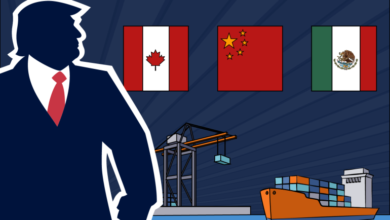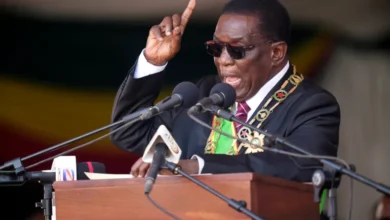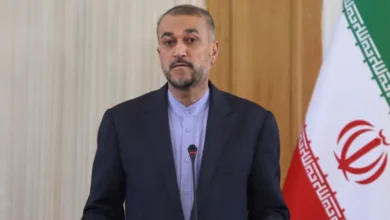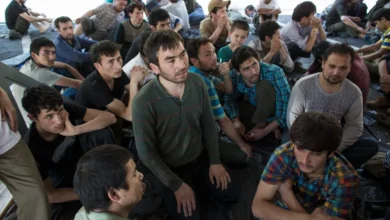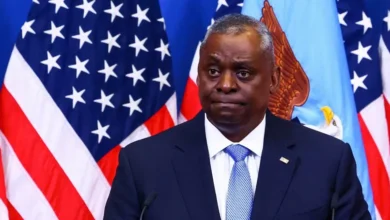Protests called as Georgia revives controversial ‘foreign agents’ law
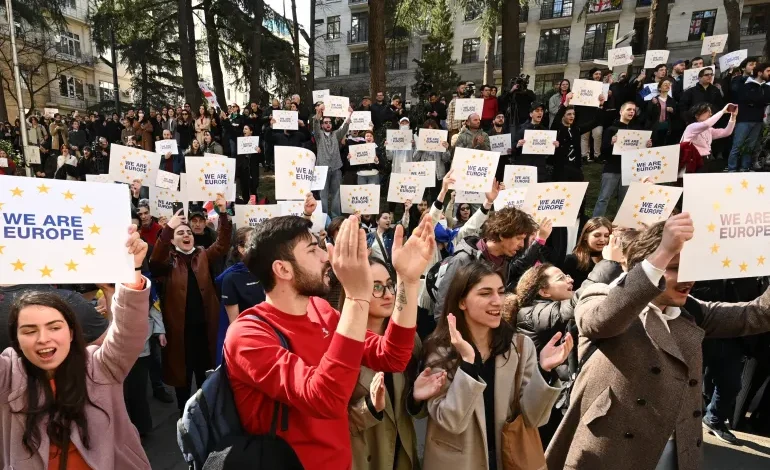
Pro-democracy groups have called for protests after Georgia’s governing party said it will revive the controversial “foreign agents law” that mass demonstrations forced it to drop last year.
The governing Georgian Dream party said on Wednesday that it plans to make another bid to pass the legislation, which would require organisations that accept funding from abroad to register as “foreign agents”. The measure is viewed as a threat to civil society and free media.
Likened by critics – including Georgia’s pro-EU president – to laws that Russian President Vladimir Putin has used to crush dissent, the proposed bill would, if passed, require Georgian organisations receiving more than 20 percent of their funding from abroad to register or face penalties.
The announcement of the bid to revive the controversial legislation comes just more than a year after it dropped the bill under pressure from tens of thousands of protesters in Tbilisi.
Demonstrators in the capital clashed with police, who fired water cannon and tear gas at the crowds, over several days in March 2023.
The European Union, which Georgia intends to join, also denounced the law last year and warned that it would target NGOs, media organisations and individual journalists who receive foreign funding.
In a statement on Wednesday, the Georgian Dream party said that following the protests, it had changed the wording of the law.
Under the new version of the legislation, NGOs, media, and journalists would have to register as an “organisation pursuing the interests of a foreign power” instead of an “agent of foreign influence”.
“All other sections of the draft law remain unchanged,” the party said.
The head of the Georgian Dream governing bloc’s parliamentary faction, Mamuka Mdinaradze, added that opposition parties had misled the public about the legislation last year.
He highlighted that the “foreign agents” bill would be passed before parliament breaks up for general election in October.
European Path
Georgian Dream, founded by billionaire and former Prime Minister Bidzina Ivanishvili, has been the country’s governing party since 2012.
Although it still professes ambitions of taking Georgia into the EU and NATO, in recent years, it has been accused by domestic and Western critics of authoritarian tendencies and excessive closeness to Russia.
The revival of the “foreign agents” law is likely to fuel further criticism and deep divisions in the country, and the pro-democracy groups that organised last year’s protests have been quick to announce protests against the move.
“With all the available means, we will confront yet another serious attempt to Russify Georgia,” they said in a joint statement.
President Salome Zurabishvili, who is at loggerheads with the governing party, also condemned the move, saying that it threatens to damage Georgia’s democracy.
However, she also insisted that the country will not be derailed from its European track.
“Georgia’s European path cannot be stopped … nobody can restore the past,” she said on social media. “No Russian law, nor any other destructive policy can prevent a determined nation to achieve its goal.”
